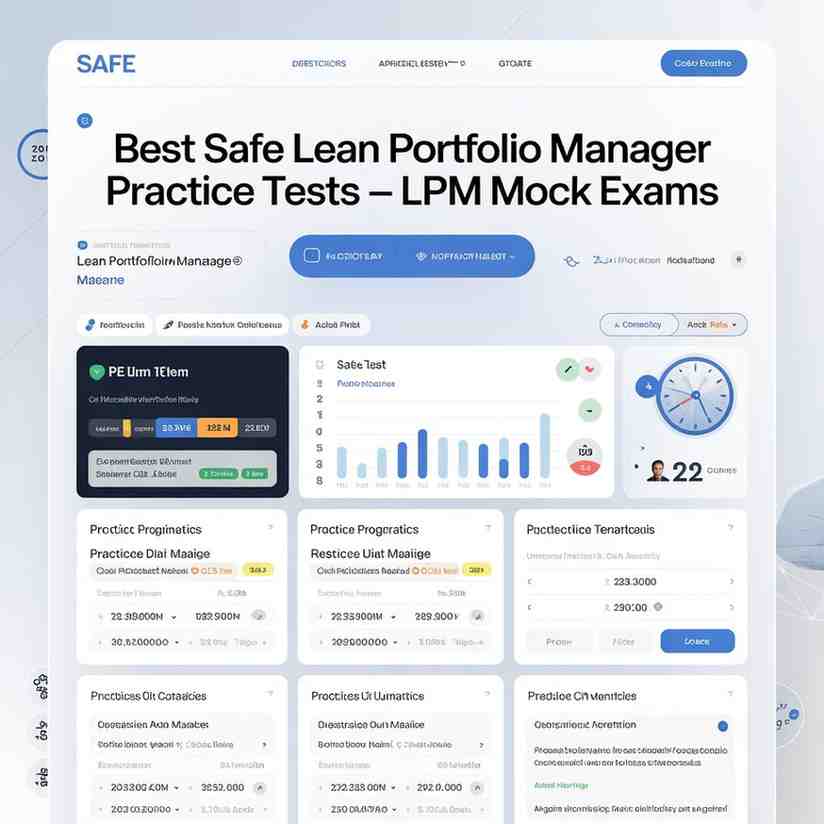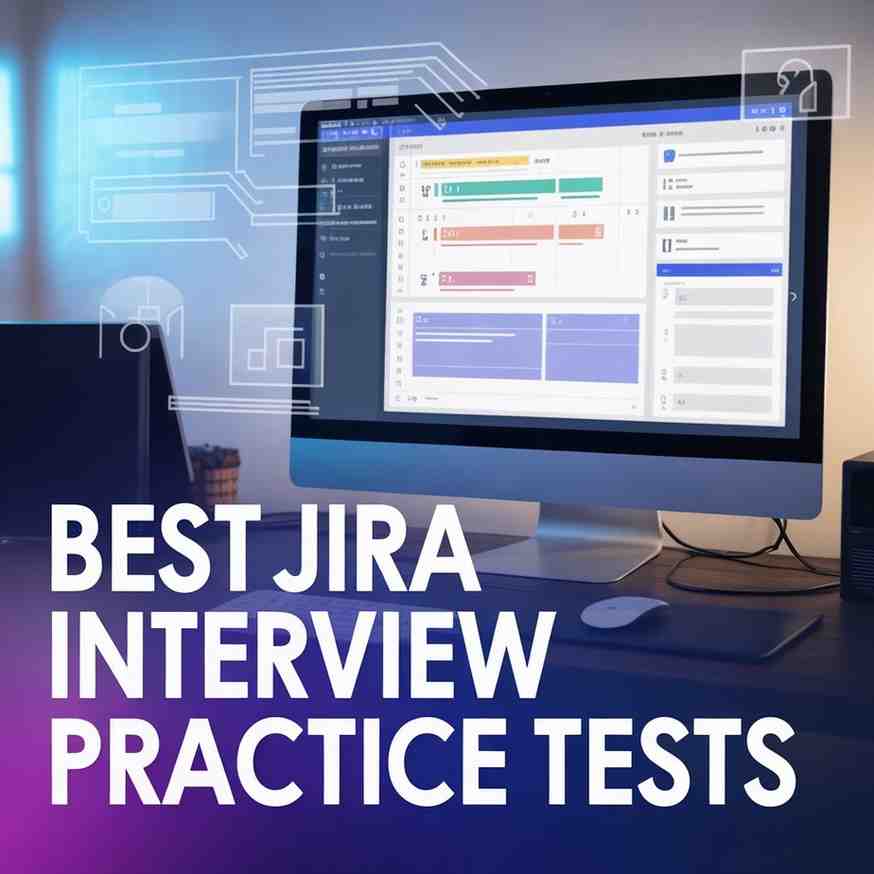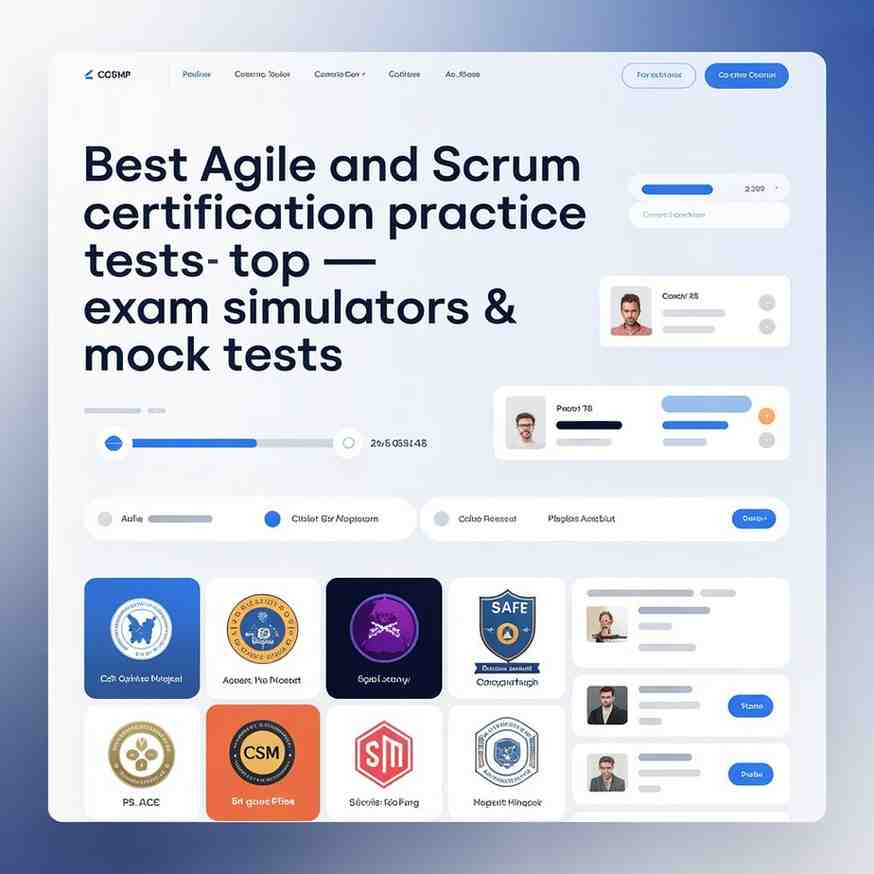Delivery Manager Basics
What do delivery managers do?
A delivery manager is responsible for successfully delivering a project or product. They work with a team of developers, designers, and other professionals to ensure that the project is completed on time, within budget, and to the required quality standards. The delivery manager manages the project from start to finish, including planning, scheduling, risk management, resource allocation, and communication with stakeholders. They are also responsible for tracking progress and adjusting as needed to keep the project on track. In addition, the delivery manager may be responsible for providing guidance and mentorship to team members and working with clients or other stakeholders to ensure that their needs and expectations are met.
The delivery manager role is typically present in service-based companies like Accenture, Cognizant, TCS etc.
delivery manager roles and responsibilities
Delivery managers primary roles and responsibilities include:
- Planning and scheduling the delivery process, including defining project scope, milestones, and timelines.
- Managing the budget and resources of the delivery, including allocating tasks to team members and ensuring that the project stays on track.
- Identifying and managing risks to the delivery, including developing contingency plans to mitigate potential issues.
- Communicating with stakeholders, including team members, clients, and other stakeholders, to ensure that everyone is informed about the progress of the delivery.
- Tracking progress and making adjustments as needed to keep the delivery on track.
- Providing guidance and mentorship to team members to ensure that they have the skills and support they need to complete their tasks.
- Working with clients or other stakeholders to meet their needs and expectations.
Overall, delivery managers are responsible for ensuring that the delivery is completed on time, within budget, and to the required quality standards.
What is a product delivery manager?
A product delivery manager is responsible for overseeing the successful delivery of a product to a client or customer. They work with a team of professionals to ensure that the product is delivered on time, within budget, and to the required quality standards.
The product delivery manager manages the delivery process from start to finish, including planning, scheduling, risk management, resource allocation, and communication with stakeholders.
They are also responsible for tracking progress and making adjustments as needed to keep the delivery on track.
In addition, the product delivery manager may be responsible for providing guidance and mentorship to team members and working with clients or other stakeholders to ensure that their needs and expectations are met.
What is a technical delivery manager?
A technical delivery manager oversees the successful delivery of technical products or services to a client or customer. They work with a team of professionals to ensure that the technical delivery is completed on time, within budget, and to the required quality standards. The technical delivery manager manages the delivery process from start to finish, including planning, scheduling, risk management, resource allocation, and communication with stakeholders. They are also responsible for tracking progress and adjusting to keep the delivery on track.
In addition to managing the delivery process, technical delivery managers are also responsible for ensuring that the technical aspects of the delivery are completed successfully. This may involve coordinating the work of technical professionals such as software developers, systems engineers, and IT professionals. The technical delivery manager may also be responsible for providing guidance and mentorship to team members and working with clients or other stakeholders to ensure that their needs and expectations are met.
Technical delivery managers typically have a strong understanding of technical concepts and systems and excellent project management skills.
Get in the top 1%, and work at the world’s best organizations
The delivery manager will be responsible for overseeing the successful delivery of our products and services to clients. The ideal candidate will have a strong educational background and several years of professional experience in a related field, as well as a strong understanding of project management principles.
Responsibilities:
- Develop and implement delivery plans, including defining project scope, milestones, and timelines.
- Manage the budget and resources of the delivery, including allocating tasks to team members and ensuring that the project stays on track.
- Identify and manage risks to the delivery, including developing contingency plans to mitigate potential issues.
- Communicate with stakeholders, including team members, clients, and other stakeholders, to ensure that everyone is informed about the progress of the delivery.
- Track progress and make adjustments as needed to keep the delivery on track.
- Provide guidance and mentorship to team members to ensure that they have the skills and support they need to complete their tasks.
- Work with clients or other stakeholders to ensure that their needs and expectations are met.
- Lead and Manage a team of developers, QA, project managers and multiple other key profiles.
Requirements:
- Bachelor’s or master’s degree in a field such as computer science, engineering, business, or a related discipline.
- 5+ years of professional experience in a delivery management or project management role.
- Strong understanding of project management principles.
- Excellent communication
Who can become delivery manager?
Delivery managers typically have a solid educational background and several years of professional experience in a related field. In particular, delivery managers should have a bachelor’s or master’s degree in a field such as a computer science, engineering, business, or a related discipline. They should also have a strong understanding of project management principles and demonstrate their ability to manage complex projects from start to finish.
In terms of experience, delivery managers should have a track record of success in delivery management roles, including experience leading cross-functional teams and working with clients to deliver high-quality projects on time and within budget. They should also demonstrate their ability to adapt to new technologies and environments and their problem-solving and communication skills.
To increase their chances of becoming a delivery manager, professionals may consider obtaining relevant certifications such as the Project Management Professional (PMP) certification. They should also be proactive in seeking opportunities to develop their skills and experience by taking on additional responsibilities within their current role or seeking additional training and development opportunities.
A day in the life of a Delivery Manager
A day in the life of a delivery manager can vary depending on the specific industry, organization, and project. However, here is a general outline of what a delivery manager’s day might look like:
- Reviewing progress: The delivery manager may start their day by reviewing the progress of the delivery and identifying any issues or concerns that need to be addressed.
- Meeting with team members: The delivery manager may hold regular meetings to discuss progress, assign tasks, and address any issues that have arisen.
- Communicating with stakeholders: The delivery manager may also spend time communicating with stakeholders, including clients, vendors, and other team members, to ensure that everyone is informed about the progress of the delivery.
- Managing risks: The delivery manager may identify and manage risks to the delivery, including developing contingency plans to mitigate potential issues.
- Planning and scheduling: The delivery manager may spend time planning and scheduling future work, including defining project scope, milestones, and timelines.
- Reviewing budgets and resources: The delivery manager may also review budgets and resources to ensure that the delivery stays on track and that the team has the necessary resources to complete their tasks.
Overall, the delivery manager’s day is focused on ensuring that the delivery is completed successfully, on time, and within budget.
Is the delivery manager a good role
It depends on what you are looking for in a role. This can be rewarding if you enjoy managing and organizing projects and working with a team to ensure that projects are completed on time and within budget. However, it can also be a high-pressure role, as you may be responsible for ensuring that projects are delivered successfully and meeting deadlines. If you have strong leadership skills, enjoy problem-solving, and can manage multiple tasks simultaneously, you may find the delivery manager role to be a good fit for you.
Comparison of Delivery manager with other profiles
Delivery manager vs. Portfolio manager
We have already understood about Delivery Manager profile, Now lets understand what a portfolio manager is a portfolio manager is responsible for managing a portfolio of investments on behalf of an individual or organization. They make decisions about which investments to buy and sell to maximize the return on the portfolio. They may also monitor market conditions and adjust the portfolio to align with the organization’s investment goals.
In general, delivery managers focus on the successful execution of a specific project or set of projects, while portfolio managers focus on maximizing the return on a portfolio of investments.
What is the difference between a delivery manager and a project manager?
Delivery managers and project managers are responsible for leading and coordinating the work of a team to achieve specific goals and objectives. However, there are some critical differences between these two roles.
One difference is the scope of responsibility. Delivery managers are typically responsible for overseeing the delivery of a product or service to a client. In contrast, project managers manage a specific project from start to finish. This means that the delivery manager’s focus is on the result, while the project manager’s guide is on the process of completing the project.
Another difference is the level of responsibility. Delivery managers often have a higher level of accountability than project managers, as they are responsible for the overall success of the delivery process. They may be responsible for managing multiple projects or teams and may have greater organizational authority. On the other hand, project managers are typically responsible for managing a specific project and may have a different level of authority or oversight.
Overall, the main difference between delivery managers and project managers is the focus of their work. Delivery managers focus on the result, while project managers focus on the process of completing a specific project.
delivery manager and program manager difference
Delivery managers and program managers are responsible for leading and coordinating the work of a team to achieve specific goals and objectives. However, there are some critical differences between these two roles.
One difference is the scope of responsibility. For example, delivery managers are typically responsible for overseeing the delivery of a product or service to a client. In contrast, program managers are responsible for managing a larger initiative or portfolio of projects. This means that the delivery manager’s focus is on the result of a specific project or delivery, while the program manager’s focus is on the overall success of the initiative or portfolio of projects.
Another difference is the level of responsibility. Program managers often have a higher level of accountability than delivery managers, as they are responsible for the overall success of the initiative or portfolio of projects. They may be responsible for managing multiple projects or teams and may have greater authority within the organization. On the other hand, delivery managers are typically responsible for managing a specific project or delivery and may have a different level of authority or oversight.
Overall, the main difference between delivery and program managers is the focus of their work. Delivery managers focus on the result of a specific project or delivery, while program managers focus on the overall success of an initiative or portfolio of projects.
The delivery manager role is typically present in service-based companies, while the Program Manager role is present in Product based companies.
Program Managers draw a significantly higher salary than Delivery Managers.
If you are looking for a practical Program Managers certification that can help boost your career, Check out here.
What is the difference between a delivery manager and a scrum master?
Delivery managers and scrum masters are responsible for managing a product or service delivery. However, there are some critical differences between these two roles.
One difference is the scope of responsibility. Delivery managers are typically responsible for overseeing the delivery of a product or service to a client. In contrast, scrum masters are responsible for managing the delivery of a product using the Agile Scrum framework. This means that the delivery manager’s focus is on the result of the delivery, while the scrum master’s focus is on ensuring that the delivery is completed using the Agile Scrum process.
Another difference is the level of responsibility. Delivery managers often have a higher level of responsibility than scrum masters, as they are responsible for the overall success of the delivery process. They may be responsible for managing multiple projects or teams and may have greater organizational authority. Scrum masters, on the other hand, are typically responsible for managing the delivery of a specific product using the Agile Scrum framework and may not have the same level of authority or oversight.
Overall, the main difference between delivery managers and scrum masters is the focus of their work. Delivery managers focus on the end result of the delivery, while scrum masters concentrate on ensuring that the delivery is completed using the Agile Scrum process.
Service delivery manager
What's a service delivery manager
A service delivery manager is responsible for successfully delivering a service or product to a client or customer. They work with a team of professionals to ensure that the service is delivered on time, within budget, and to the required quality standards. The service delivery manager manages the delivery process from start to finish, including planning, scheduling, risk management, resource allocation, and communication with stakeholders. They are also responsible for tracking progress and adjusting to keep the delivery on track. In addition, the service delivery manager may be responsible for providing guidance and mentorship to team members and working with clients or other stakeholders to ensure that their needs and expectations are met.
how to become a service delivery manager
To become a service delivery manager, you should have a solid educational background and several years of professional experience in a related field. In particular, you should have a bachelor’s or master’s degree in a field such as business, computer science, engineering, or a related discipline. You should also have a strong understanding of service delivery principles and demonstrate your ability to manage complex projects from start to finish.
In terms of experience, employers will likely look for candidates with a track record of success in service delivery management roles, including experience leading cross-functional teams and working with clients to deliver high-quality projects on time and within budget. You should also demonstrate your ability to adapt to new technologies and environments and your problem-solving and communication skills.
To increase your chances of becoming a service delivery manager, consider obtaining relevant certifications such as the Project Management Professional (PMP) certification. It would help if you also were proactive in seeking out opportunities to develop your skills and experience, such as by taking on additional responsibilities within your current role or seeking additional training and development opportunities.
Delivery Management as a Career
What is the salary of the delivery manager?
The salary of a delivery manager can vary depending on several factors, such as the size and industry of the organization they work for, their level of education and experience, and their geographic location. According to data from Glassdoor, the median salary for a delivery manager in the United States is $87,000 per year. However, salaries can range from $60,000 to over $120,000 per year, depending on the abovementioned factors. It’s worth noting that these figures are just estimates and should be taken as a rough guide, as actual salaries may vary significantly.

What is the salary of the delivery manager in India?
The salary of a delivery manager in India can vary depending on several factors, such as the size and industry of the organization they work for, their level of education and experience, and their geographic location. According to data from Glassdoor, the median salary for a delivery manager in India is approximately INR 24,00,000 per year. However, salaries can range from INR 8,00,000 to over INR 40,00,000 per year, depending on the abovementioned factors. It’s worth noting that these figures are just estimates and should be taken as a rough guide, as actual salaries may vary significantly.

how to become a delivery manager in Infosys
To be considered for a delivery manager position at Infosys, you will typically need a strong educational background, several years of professional experience, and a solid understanding of project management principles.
You should also have a track record of success in delivery management roles, including experience leading cross-functional teams and working with clients to deliver high-quality projects on time and within budget. Additionally, it is important to have the ability to adapt to new technologies and environments and strong problem-solving and communication skills.
To increase your chances of becoming a delivery manager at Infosys, you may want to consider obtaining relevant certifications, such as the Project Management Professional (PMP) certification, and seek out opportunities to further develop your skills and experience.
how to become a delivery manager at TCS
To become a delivery manager at TCS (Tata Consultancy Services), you will typically need a solid educational background and 15+ years of professional experience in a related field. In particular, you should have a bachelor’s or master’s degree in a field such as a computer science, engineering, business, or a related discipline.
In addition, you should also have a strong understanding of project management principles and demonstrate your ability to manage complex projects from start to finish.
In terms of experience, TCS will look for candidates with a track record of success in delivery management roles, including experience leading cross-functional teams and working with clients to deliver high-quality projects on time and within budget. You should also demonstrate your ability to adapt to new technologies and environments and your problem-solving and communication skills.
To increase your chances of becoming a delivery manager at TCS, consider obtaining relevant certifications such as the Project Management Professional (PMP) certification. It would be best if you also were proactive in seeking out opportunities to develop your skills and experience, such as by taking on additional responsibilities within your current role or seeking additional training and development opportunities.
What makes a good delivery manager
Several qualities can make a delivery manager effective in their role. These include:
- Strong leadership skills: Delivery managers should be able to lead and motivate a team to deliver a product or service successfully.
- Excellent communication skills: Delivery managers should be able to communicate expectations and updates to team members and stakeholders.
- Good problem-solving skills: Delivery managers should be able to identify and resolve issues that may arise during the delivery process.
- Strong organizational skills: Delivery managers should be able to plan and schedule work effectively, track progress, and make adjustments as needed.
- Ability to adapt: Delivery managers should be able to adapt to new technologies and environments and handle changes and unexpected challenges.
- Strong attention to detail: Delivery managers should pay attention to details to ensure the delivery is completed to the required quality standards.
- Good relationship-building skills: Delivery managers should be able to build and maintain positive relationships with team members, clients, and other stakeholders.
Is the delivery manager a Technical role?
Typically it is not, It depends on the specific context and industry. For example, in some cases, a delivery manager may be responsible for managing the delivery of technical products or services. In this case, they would need a strong understanding of technical concepts and systems. In other cases, a delivery manager may be responsible for managing the delivery of non-technical products or services, in which case technical expertise may be less critical.
Depending on the industry and the specific product or service delivered, a delivery manager may need a solid technical background to be effective.
Is delivery manager an Agile role?
Delivery managers are be responsible for managing the delivery of products or services using Agile principles and methodologies. In an Agile setting, the delivery manager may work closely with the Agile team to ensure that the delivery is aligned with the Agile values and principles.
In an Agile environment, the delivery manager’s role may involve the following:
- Leading the delivery team and ensuring that the team follows the Agile process and practices.
- Working with the Agile team to plan and schedule the delivery, including defining the scope, milestones, and timeline.
- Tracking progress and making adjustments as needed to ensure that the delivery stays on track.
- Facilitating regular meetings and reviews with the team to discuss progress and address any issues that may arise.
- Ensuring that the team follows the Agile values and principles and makes adjustments as needed to improve the delivery process.
Overall, the delivery manager’s role in an Agile environment is to ensure that the delivery is completed successfully using Agile principles and methodologies.
delivery manager career path
The career path for a delivery manager may vary depending on the specific industry and organization. In general, delivery managers start by gaining experience in project management or delivery roles and then progress to more senior positions over time.
Here is a general outline of the career path for a delivery manager:
- Entry-level positions: Delivery managers may start their careers in entry-level positions such as delivery coordinator or project coordinator, where they are responsible for supporting the delivery process and assisting the delivery manager.
- Delivery manager: After gaining experience in entry-level positions, delivery managers may move into the role of delivery manager, where they oversee the delivery of a product or service to a client.
- Senior delivery manager: With additional experience and demonstrated success in delivery management roles, delivery managers may be promoted to senior delivery managers or managers of delivery management, responsible for managing multiple delivery teams or projects.
- Director of delivery management: At the highest level, delivery managers may be promoted to director of delivery management, responsible for overseeing the delivery function for an entire organization or division.
- Program Manager / Technical Program Manager: Program Managers are placed very highly
Overall, the career path for a delivery manager involves gaining experience and taking on increasing levels of responsibility over time. Delivery managers may also choose to specialize in a particular industry or type of product or service as they progress in their careers.








